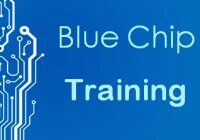 Overview
Overview
TIBCO Spotfire X is a business intelligence and augmented analytics tool that combines natural language, artificial intelligence (AI), and streaming data technologies.
This instructor-led, live training (online or onsite) is aimed at business analysts and data analysts who wish to use TIBCO Spotfire X with its artificial intelligence capabilities to visualize, transform, and analyze data.
By the end of this training, participants will be able to:
- Install and configure TIBCO Spotfire X.
- Understand the features and architecture of TIBCO Spotfire X.
- Understand the concepts behind augmented and predictive analytics.
- Learn how to load, process, and visualize data using Spotfire X.
- Create interactive and enhanced data visualizations.
Format of the Course
- Interactive lecture and discussion.
- Lots of exercises and practice.
- Hands-on implementation in a live-lab environment.
Course Customization Options
- To request a customized training for this course, please contact us to arrange.
Requirements
- Experience with business intelligence and data analysis
Audience
- Business analysts
- Data analysts
Course Outline
Introduction
- What’s new in TIBCO Spotfire X?
- Overview of TIBCO Spotfire X features and architecture
- Understanding augmented and predictive analytics
Getting Started
- Installing TIBCO Spotfire X
- Upgrading Spotfire
- Navigating the UI
Loading Data
- Connecting to a database
- Configuring an on-demand data source
- Importing data from a file
- Transforming data
Processing Data
- Working with large data sets
- Connecting to streaming data
- Handling data in analysis flyout
- Managing data in data canvas
- Manipulating data tables
- Working with multiple data tables
Visualizing Data
- Types of charts, tables, maps, and other visualizations
- Interacting with visualized data
- Enhancing visualizations
- Collaborating using conversations, annotations, etc.
- Using tags, filters, lists, and other tools
Troubleshooting
Summary and Next Steps
